1mm micro screws are diminutive precision fasteners tailored for use where space is scarce and dependability is critical. These tiny yet vital components play a pivotal role across various sectors, including electronics and eyewear, ensuring robust and enduring connections within compact devices. The micro screws come in an assortment of sizes, with the versatile 1mm diameter being particularly popular, and are crafted to conform to stringent standards of durability and uniformity.
Types and Characteristics of 1mm Micro Screws
The assortment of 1mm micro screws encompasses a spectrum of types, each with unique features to cater to specific needs. Choices of head styles, such as flat, pan, or oval, hinge on the desired surface finish and the engagement of the tool. Drive types vary, including slotted, Phillips, and Torx options, each offering a distinct level of torque transmission and resistance to cam-out. Thread patterns are equally crucial, with finer threads for metal and coarser ones for plastic or wood, enabling a tailored approach to complex assembly requirements.
Structure and Operation of 1mm Micro Screws
The architecture of 1mm micro screws consists of the head, threaded shaft, and tip. The head is fashioned to couple with a specific driver type, ranging from straightforward flat-heads to more intricate star-shaped or hexalobular internal drives. The threaded shaft, the screw's fundamental element, is meticulously designed with a consistent helical angle for seamless insertion and maximum retention. The tip, either pointed or flat, is contingent on the need for self-tapping capabilities. This elaborate configuration enables the micro screws' application in diverse contexts, from fastening delicate electronic parts to piecing together sophisticated mechanical apparatuses.
Materials and Properties
The selection of materials for 1mm micro screws is driven by their mechanical attributes and the environments they will encounter. Stainless steel is often the material of choice for its amalgamation of strength and resistance to corrosion, ideal for electronics at risk of moisture exposure. Carbon steel screws, on the other hand, can be tempered for enhanced torque endurance, suitable for scenarios demanding extremely tight fastening. Surface treatments such as black oxide or zinc plating are employed to bolster the screws' defense against corrosion and wear, thus prolonging the lifespan of the devices they integrate.
Business Usages and Applications
1mm micro screws are fundamental to the manufacturing workflows in sectors like electronics, securing components within densely populated circuit boards. In optics, these screws are indispensable for the meticulous construction of eyeglass frames and lenses. The medical industry utilizes them in various apparatuses, from compact surgical instruments to expansive imaging machines. The automotive sector depends on these screws for the assembly of minute, complex parts that are essential to vehicle safety and performance. Their incorporation not only streamlines the production of cutting-edge products but also underpins the repair and upkeep of these items, thereby augmenting their value and service life.
Functions and Tasks
The principal role of 1mm micro screws is to ensure a steadfast fastening in scenarios where limited space and exactitude are imperative. Despite their modest size, they are engineered to maintain components firmly in position. These screws are versatile, employed in tasks ranging from the assembly of fragile electronic devices to the fastening of minuscule mechanical watch parts. Their dependability is vital in situations where a single component's failure could compromise an entire system's functionality.
Features and Unique Selling Points
Notable features of 1mm micro screws that distinguish them include their precision engineering, the diversity of head types offered, and the specialized materials from which they are constructed. These characteristics ensure adaptability across various settings and uses, from high-temperature environments to locations prone to electromagnetic disturbances. The capacity to customize these screws to precise project specifications is a distinctive advantage that differentiates them from conventional fasteners.
Benefits and Positive Outcomes
The employment of 1mm micro screws brings forth numerous advantages, such as facilitating the creation of more compact, efficient electronic devices. Their diminutive stature grants designers greater creative leeway, leading to innovative offerings that align with the dynamic demands of the market. In medical contexts, their application in surgical tools and implants has resulted in less intrusive procedures and enhanced patient recovery. The screws' reliability contributes to the longevity and robustness of products, a crucial aspect in industries where safety and performance are of the utmost importance.
How to Use and Maintain 1mm Micro Screws
Optimal utilization of 1mm micro screws necessitates precision instruments and meticulous handling. The correct screwdriver must correspond to the head type, and the proper torque should be applied to prevent damage to both the screw and the application material. Maintenance entails routine inspections to confirm that the screws remain tight, especially in settings prone to vibrations or thermal fluctuations. In corrosive environments, periodic replacement of the screws may be warranted to avert failure. Adequate storage solutions, such as segmented trays or magnetic mats, are instrumental in organizing and preserving these diminutive components.
How do I ensure the quality of 1mm micro screws?
To guarantee the quality of 1mm micro screws, it is essential to procure them from esteemed manufacturers who comply with international norms and conduct thorough quality assessments. Confirming that the material and finish specifications are apt for the intended application is also crucial. Periodic audits and sample testing can offer further confirmation of consistent quality.
What are the common challenges when working with 1mm micro screws?
Challenges encountered when handling 1mm micro screws include their minute size, which complicates manipulation, the necessity of applying appropriate torque to prevent stripping during installation, and the selection of suitable tools for driving them. Addressing these issues often demands specialized equipment and expertise, as well as a comprehensive grasp of the mechanical properties and constraints of these diminutive fasteners.
How to maintain the integrity of 1mm micro screws in harsh environments?
Preserving the integrity of 1mm micro screws in adverse conditions requires choosing screws with materials and finishes that are resilient to the expected challenges, such as extreme moisture or corrosive agents. Proactive inspections and preventative upkeep are also key in detecting and addressing potential problems before they lead to component failure.

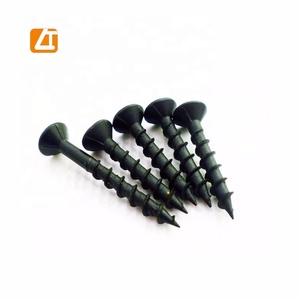


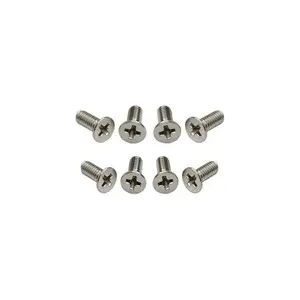



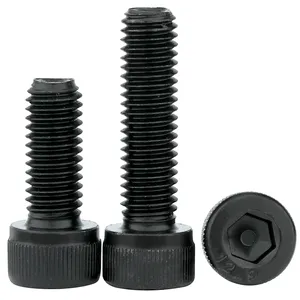

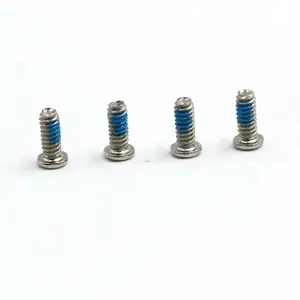

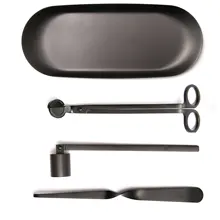



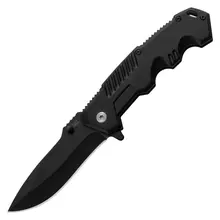



























 浙公网安备 33010002000092号
浙公网安备 33010002000092号 浙B2-20120091-4
浙B2-20120091-4